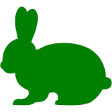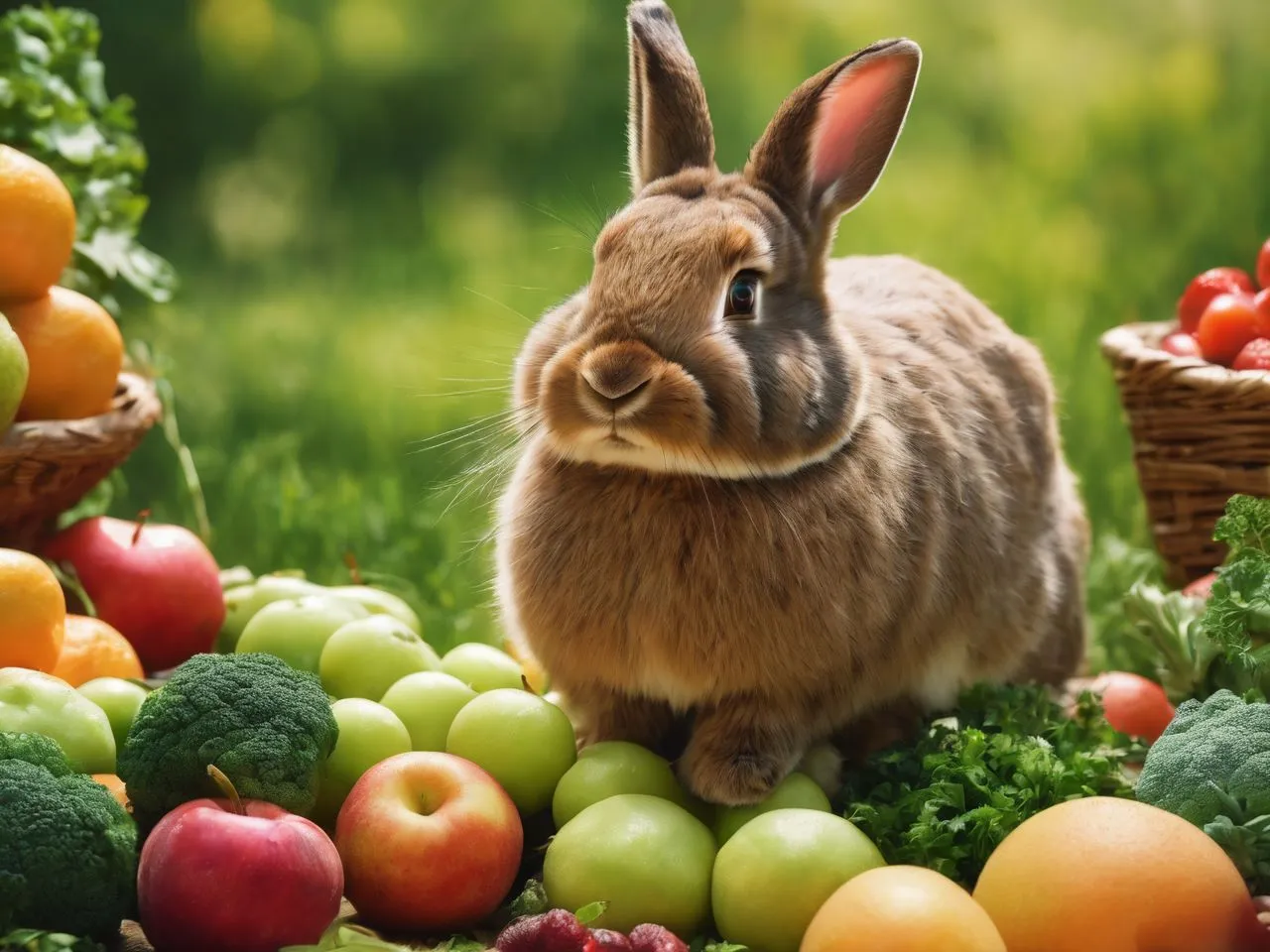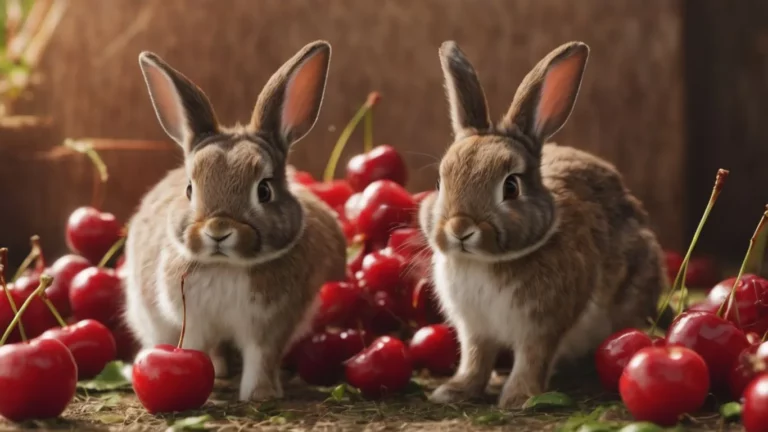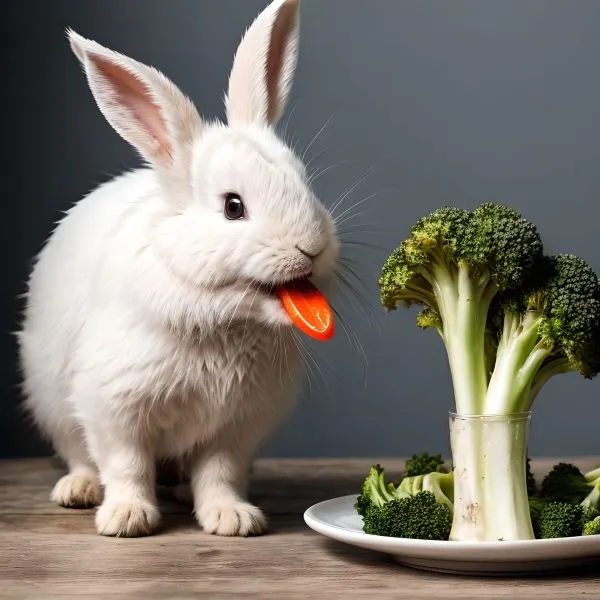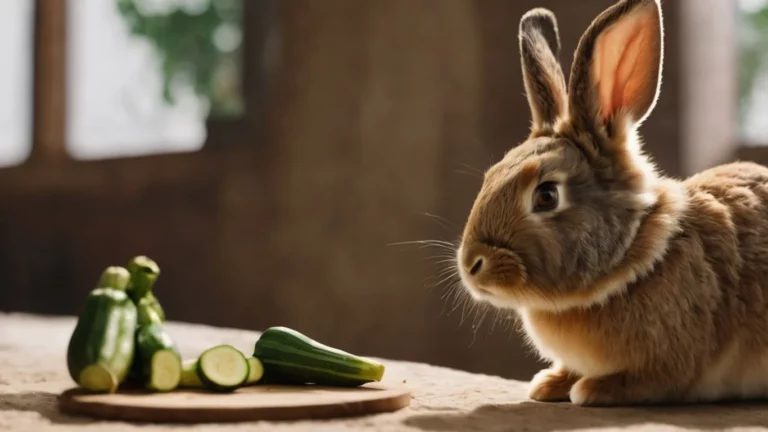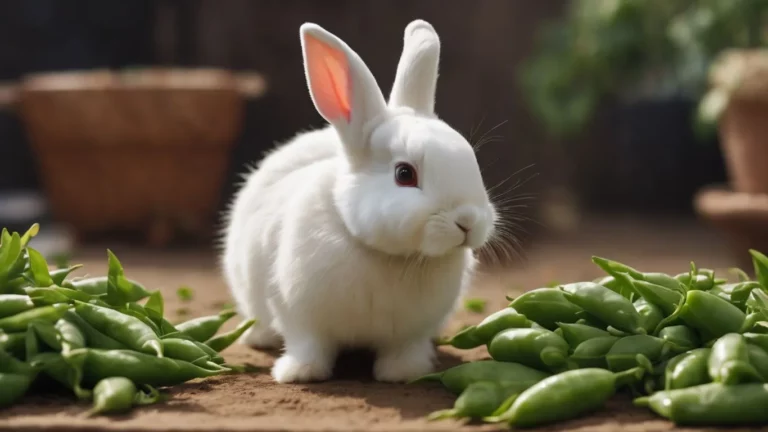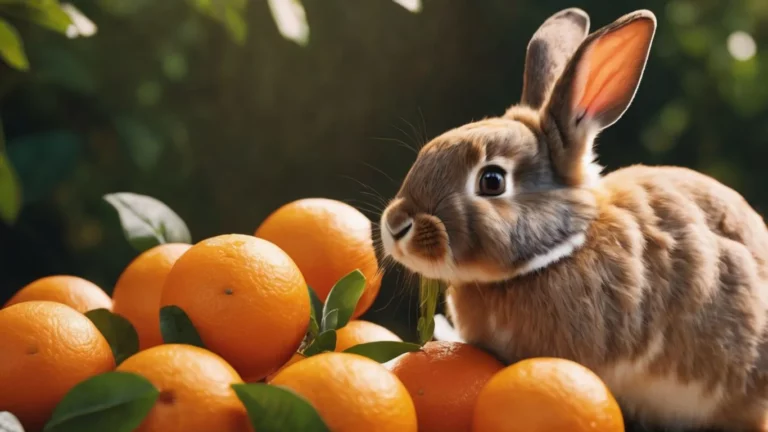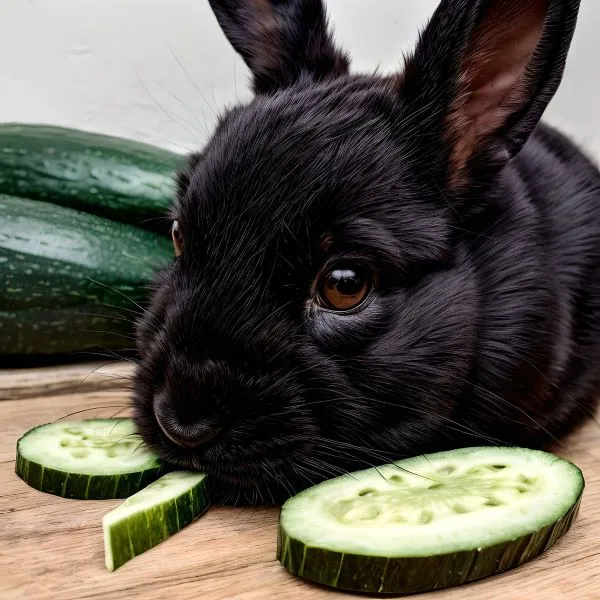What Can Rabbits Eat for Optimal Health? Unlocking the Ultimate Rabbit Feast
Pet rabbits require a well-balanced and nutritious diet to ensure their overall health and well-being. This comprehensive guide covers the essential components of a rabbit’s diet, including hay, pellets, vegetables, fruits, and treats. By understanding the dietary needs of your rabbit, you can provide them with a diet that promotes dental health, proper digestion, and a happy, active lifestyle.
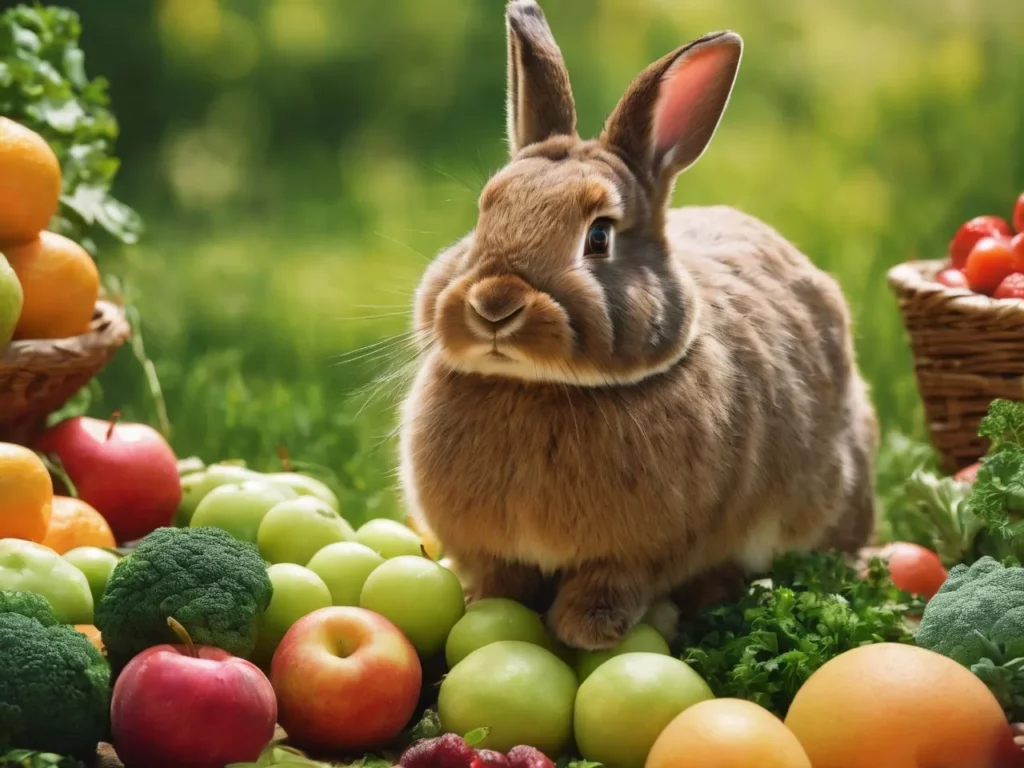
The Importance of Hay:
Hay serves as the foundation of a rabbit’s diet, constituting 80-90% of their daily intake. Opt for high-quality grass hays like timothy, orchard grass, brome, or oat hay. Avoid alfalfa hay for adult rabbits due to its richness. Provide a constant supply of fresh hay, free from mold or dust, as grazing is a natural behavior for rabbits.
Bunny Pellets:
Timothy hay pellets are suitable for adult rabbits, with recommended daily quantities ranging from 1/8 to 1/4 cup, depending on the rabbit’s size. Avoid pellets with added corn, nuts, or seeds, as these can be harmful. Young rabbits under one year can be fed alfalfa pellets, but a gradual transition to grass hay is advised as they age.
Vegetables: A Rabbit’s Favorite Foods
Introduce a variety of fresh vegetables to your rabbit’s diet, with a daily limit of 2 cups for adults and 1 cup for smaller breeds. Include options like bell peppers, bok choy, carrots tops, and herbs. Some vegetables should be given sparingly, such as broccoli and kale, to prevent digestive issues.
Fruits: Occasional Sweet Treats:
Offer fruits once or twice a week, limiting the serving to 1-2 tablespoons per 5 pounds of body weight. Safe fruits include apples, berries, cherries, melons, and more. Always remove seeds and pits, and introduce new fruits slowly to monitor for any adverse reactions.
Rabbit Treats: Feed Sparingly:
Treats, including small pieces of fresh or freeze-dried fruit, natural mixes with hay and dried flowers, and Oxbow brand rabbit treats, should be given sparingly. Avoid treats with added sugar, preservatives, or artificial coloring to maintain your rabbit’s health.
Foods to Avoid:
Certain foods, including chocolate, cereals, peas, potatoes, and others, should never be fed to rabbits as they can cause serious health issues. Always prioritize the health and safety of your rabbit by being aware of harmful foods.
Fresh Water: Unlimited Supply:
Provide rabbits with a constant supply of fresh water, using a bowl rather than a water bottle for easier cleaning. Ensure the water is changed daily, promoting hydration and preventing health issues.
Diet for Optimal Dental Health:
Rabbits’ teeth grow continuously, and a diet rich in hay and leafy greens helps wear down their teeth naturally. Avoid muesli-style foods, as they can lead to dental problems.
Feeding Guidelines and Monitoring:
Adjust feeding quantities based on age, lifestyle, and general health to prevent underweight or overweight rabbits. Monitor eating and drinking habits, as changes may indicate potential health issues.
Variety in Diet
Introduce a variety of hay, greens, and vegetables to provide a balanced and interesting diet. Rotate leafy greens to offer different tastes and textures while ensuring proper nutrition.
Grass Hay Always Comes First
Before introducing fresh foods, ensure your rabbit has been consuming grass hay for at least two weeks. This prepares their gastrointestinal tract for new foods, reducing the risk of digestive issues.
Best Foods for a Rabbit
Include a variety of fresh greens such as asparagus, kale, parsley, and non-leafy vegetables like carrots and celery. Fresh herbs like basil, mint, and thyme can also be provided.
Foods to Never Feed Your Rabbit
Muesli, dairy products, potatoes, rhubarb, tomato leaves, and other harmful foods should be avoided. These items can lead to weight gain, digestive problems, or toxicity.
Treats in Moderation
Fruits like apples, bananas, berries, and safe vegetables can be fed as treats in small portions. Always remove pits, seeds, and monitor your rabbit’s response to new treats.
Grass Hay Always Comes First
Emphasize the importance of grass hay in a rabbit’s diet for dental health, proper digestion, and overall well-being. Choose hay varieties based on your rabbit’s age and health.
Conclusion
A well-planned and varied diet is crucial for the health and happiness of pet rabbits. By incorporating hay, pellets, vegetables, fruits, and treats in appropriate quantities, and being mindful of foods to avoid, you can provide your rabbit with a nutritionally balanced and enjoyable diet. Regular monitoring of your rabbit’s eating habits and adjusting their diet as needed will contribute to a long and healthy life.
